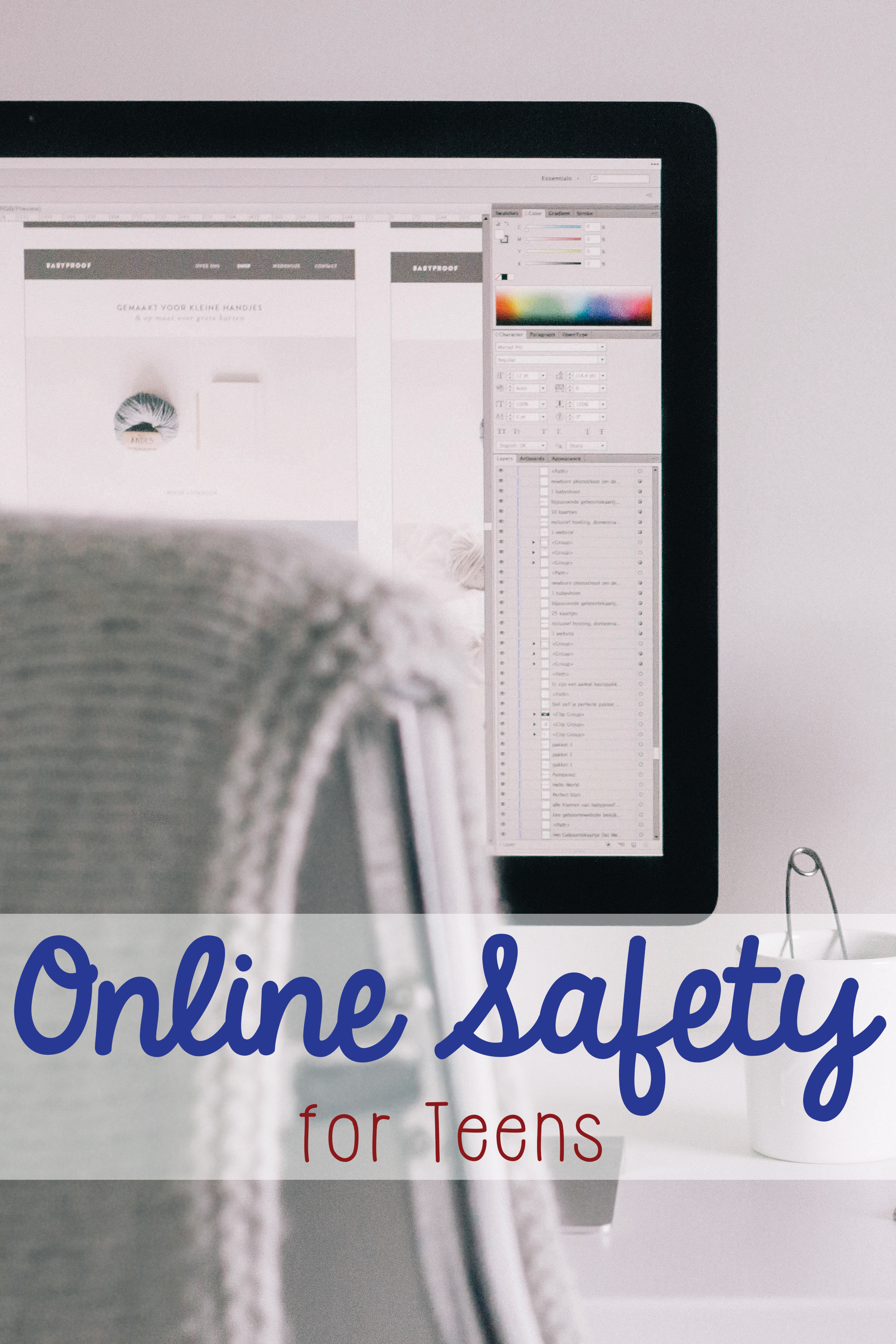I want to preface this post by saying I’m no expert in this category… while I’m sharing things that have helped my family to get my son to de-escalate during a meltdown, this does not necessarily make me an authority on the subject. Always discuss with your child’s doctor when you have questions and concerns about meltdowns or behavioral issues.
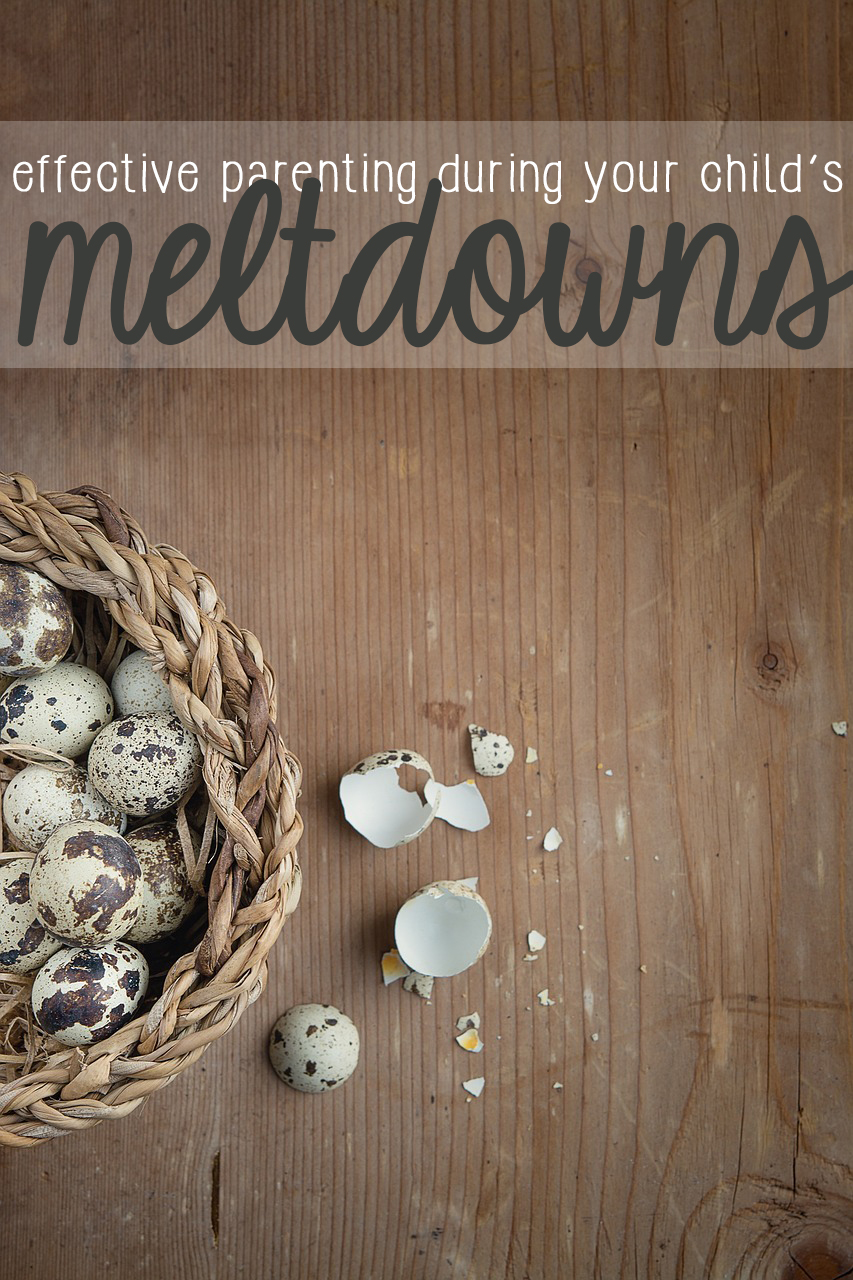
I recently shared a post about my feelings that people shouldn’t apologize for my son’s Autism Spectrum Disorder. While I stand by that, I did want to share the biggest struggle I had with my son’s diagnosis with you. I firmly believe that my son’s ASD makes him who he is, in many ways for the good, but my biggest struggle was the realization that what I had passed off as terrible twos or terrible threes tantrums, were likely full-on sensory meltdowns… and when I was told his diagnosis of an Autism Spectrum Disorder, it hit me hard… what I had spent 3 years thinking he would eventually just grow out of, I was realizing were a part of his life, and would continue to be a part of his life in coming years.
Even if we learned to manage his meltdown through various therapies that are available to children with Autism, it was very likely that to some degree, he would always struggle with outbursts of some degree or another when overstimulated or otherwise just really bothered by something.
That said, we’ve been working hard to find solutions that help to prevent, and later calm, his meltdowns. A meltdown is not the same thing as a tantrum– a tantrum will end when the desired result is achieved, but a meltdown will often continue. A tantrum will have a child avoiding anything that would bring pain to themselves, but a child having a meltdown will not notice or not care about the fact that they may be harming themselves in the process. When it comes to meltdowns, they need to be handled differently than tantrums, and here’s what I’ve personally found to be more effective.
Prevention is Key. If you see your child headed towards a meltdown, preventing it is a good way to start. If you’re at home, it may help to direct them to a quieter, darker room or activity. As I see my son headed towards a meltdown, I will often direct him towards a quieter, darker space in the home where he feels comfortable sitting alone with a book or his Kindle to unwind for a bit. When we are out and about, for example, running errands, it often just means a change of plans.
Keep consistency in scheduling, and plan ahead. In the past, I had often been shopping at one place and spontaneously remembered that we needed to pick something else up at a nearby place… and then suddenly the change of plans had Zack in meltdown mode. Changing plans can be very, very difficult for a child with an Autism Spectrum Disorder, so intense planning can be very helpful in meltdown prevention– if I said we were shopping at Target today, it doesn’t matter if I remember at Target that I needed to pick up something at the Walmart Neighborhood Market nearby… it’s often better to try to get that another time if possible, because if it wasn’t on the plans to begin with, it can cause trouble after.
Give your child plenty of rest and downtime. Zack seems to have meltdowns most during specific hours, so we ended up realizing that the naptime schedule he had when he was younger actually worked very well for him as he continued to get older– it meant working a new schedule around him waking up at a certain time, doing his morning routine and activities, having lunch, and then going to his room to watch a movie and rest, sometimes sleeping and sometimes not. Once the movie was over, he was free to go about his afternoon, but having that time to switch off completely is very beneficial for him.
Once your child is in the throes of a meltdown, it’s time to switch from prevention to safety mode.
If he’s not hurting anyone, give him space. Many kids are prone to self-harm or others-harm during a meltdown, but provided your child isn’t causing himself or others injury, it can be best to just stay back and let the child calm himself. This is what I struggle with the most as a parent– my instinct is to go to him and hold him, but often what he needs is space away from all touch and sound to calm himself down. As he gets older, he’s learning new techniques to calm himself, so if he isn’t hurting himself or others, I’ll stay in the room quietly and stay back so he can get to a place where I can step in to rock him as needed.
Find a focal point. The 3-2-1 breathing technique is very beneficial if you can get a child calm enough to try it. Sometimes, it takes working on this one before a meltdown so when they’re melting down, they can get themselves back to that point. The 3-2-1 technique starts with the child breathing while naming 3 things they see. Then, they name 2 things they can physically feel– not emotions, but physically touch or feel the sensation of. Finally, they name one thing they hear (others use smell here). I will touch Zack’s wrists so he will turn towards me, snapping him out just enough to listen and focus. I’ll then encourage him to name 3 things he sees. If he struggles to come up with them (sometimes they’re so overloaded that narrowing it to 3 is just impossible), I’ll start listing three things I see. “Zack, I can see your handsome face, the desk lamp, and our brown rocking chair. Can you tell me your three things now?” Often by the time he has reached 1, he will be calmer… but that’s if we can get to the start of 3-2-1 in the first place (it’s not always effective for younger children, children still learning to manage meltdowns, or children who are in the midst of some major overload). This is a grounding technique that brings them back to the room they’re in and out of the overwhelming nature of their head.
Juniper Berry essential oil works miracles. I promise you that I was a skeptic on this. How can an oil stop by child’s meltdowns? But when Zack is in the midst of a terrible meltdown, I will often grab my oil stick (I like Perfectly Posh’s Hipster Stick–that’s my consultant link– because it’s Juniper and other oils suspended in a shea butter carrier and can just be rubbed directly on) and rub it on any pulse point I can reach. If Zack is kicking, I may grab a foot and rub it on his sole, and if he’s hitting, I may snag a hand and rub it on his wrist. By the time I’ve gotten 3 or 4 pulse points, he’s started to relax and melt into my lap and is able to calm down a lot more… I’ve even found him go from meowing and yelling to being fully verbal with the use of essential oil, so that’s been a big one for me.
Limit input. In the middle of a meltdown, start limiting the input your child is getting. At home, this may mean darkening shades, turning off the TV, lowering voices to a quiet level just above a whisper (some children with ASD are not fond of actual whispering, as the sound it makes can be painful), and removing people from the room who don’t need to be there… if you can’t move your child to another room to limit the input it can be helpful just to politely ask others in the room to leave the room for a few minutes (like siblings).
Find a calming item. For my son, it’s a lambskin we bought at Ikea or a fuzzy blanket he got at his favorite soccer team’s soccer game. When he’s in the middle of a meltdown, handing him one of these items for him to pet can seriously soothe him. Find those attachment objects your child may have, and provided they’re on the softer side, try giving these items to them during a meltdown.
Wait it out. Sometimes, there’s nothing you can do during a meltdown, no matter how hard you try. From there, the best thing to do is let your child wear themselves out.
After the meltdown, it can be a little bit of a whirlwind…
Take time to decompress. This applies to you AND your child. A meltdown is exhausting for both the parent and the child having the meltdown, so definitely take some time just to recoup from the meltdown. It may mean a snuggle, or it may mean going to another room, so follow your child’s cues there.
Talk about it… but don’t push. It’s okay to talk to your child about the emotions they were feeling during and just before a meltdown, and try to determine what triggered it, so you can help eliminate it in the future. That said, sometimes your child may not know. There have been many meltdowns where I’ll ask Zack what made him upset… and he will have NO idea. Sometimes the process of having the meltdown can cause a child to forget what even caused it in the first place, but if you can get your child to identify what triggered it, you can work on eliminating that in the future.
One recent meltdown of Zack’s was caused by a miscommunication– his Papa had said they would play after he finished a project. What Papa saw as a pause in the project to go get a tool he needed, Zack saw as Papa walking away from the project, and in Zack’s mind, it meant he was done. So, when Papa headed to the shed to get the other tool, Zack felt slighted– Papa wasn’t playing with him as promised! This led to Zack starting to melt down and hit Papa, which was not okay. Had any of us realized before the meltdown that Zack had interpreted Papa getting up as a the end of the project, we could have communicated to him that Papa was just getting another tool but that the project wasn’t done. Or, had we known that it might lead to a meltdown, Papa could have encouraged us to get him the tool he needed so he wouldn’t appear to be walking away from the project.
Another recent time, we were at a soccer game, and Zack had a meltdown. Nothing new had happened– no new sounds that we could hear, and the atmosphere was unchanged. After his meltdown, we asked what had upset him, and asked “Zack, is there a reason you were feeling upset at that time?” He could not identify what had bothered him. While more than likely it was just the buildup of crowd excitement over time, and may have been any other factors– like the extra sugar he may eat at a game because he loves sno cones so much– we truly don’t know what caused it. We can work to eliminate known triggers, and sometimes, that’s all you can do.
Take notes. When your child can’t identify why they melted down, over time, you might be able to. By taking notes of what was happening directly before the meltdown, you may be able to find a pattern to identify a trigger. We couldn’t figure out why Zack would often meltdown at the beginning of a soccer game– something he absolutely loves and looks forward to attending– because we knew we were eliminating known triggers by bringing his headphones, bringing a car to play with, and making sure he had plenty of water and snacks and his Hipster oil stick… but then we realized the fireworks they often brought out before the game would give him serious anxiety, even though it was quieted by his noise cancelling headphones. We finally began holding our hands over the headphones to keep him feeling more secure, and the pre-game meltdowns stopped. Had we not taken notes as to WHEN he was melting down prior to each game, we may have never identified the trigger, because he couldn’t tell us what it was.
Don’t beat yourself up. You’re not a bad parent because your child is melting down, and you’re going to get through it. Work with your child’s team– whether that’s family, friends, educators, therapists, doctors… whoever– and go over the information, like triggers, that you have. From there, work on formulating a plan, but know that not everything goes according to that plan. The more you allow yourself to feel like you’re at fault, the harder it will be to effectively parent your child through their meltdowns.
Give yourself that time to decompress, just like you give your child that time, and it will be better. I promise.
Like I said, I am NO expert on this. I just know what’s helped us with his meltdowns, and I know what I’ve learned from other moms who are also parenting children with Autism Spectrum Disorders… and this is a reflection of that as well. I’m not a doctor. But I am a mom who has seen meltdowns everyday and knows what works for my family. I encourage you to talk to your child’s doctor if you have concerns, and to connect with other moms who understand your particular journey.
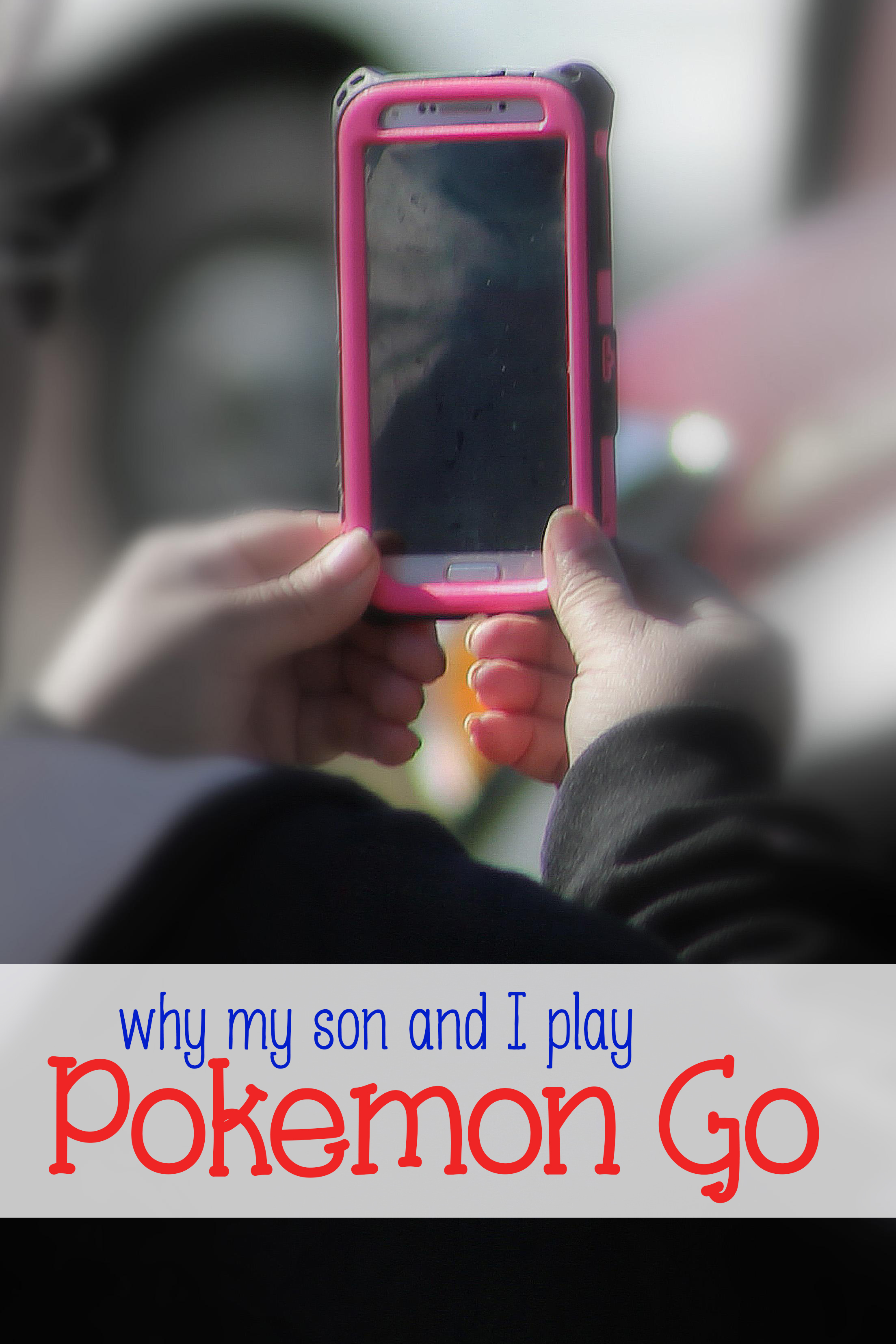

![Summer may be almost over, but there's still plenty of time to sneak in a little last-minute road trip. If you're from the Kansas City area, there are a ton of nearby options for places to travel, so you can sneak in that family bonding time before back to school hits. #RoadTripOil [ad]](http://i.imgur.com/ijVes4Y.jpg)
![Give into your chocolate cravings with these molten lava cakes... chocolate, caramel, more chocolate, it's sure to make you feel better anytime you need a chocolate fix (especially that time of the month!) #WhatMattersToU [ad]](http://i.imgur.com/Yd8ksLL.jpg)

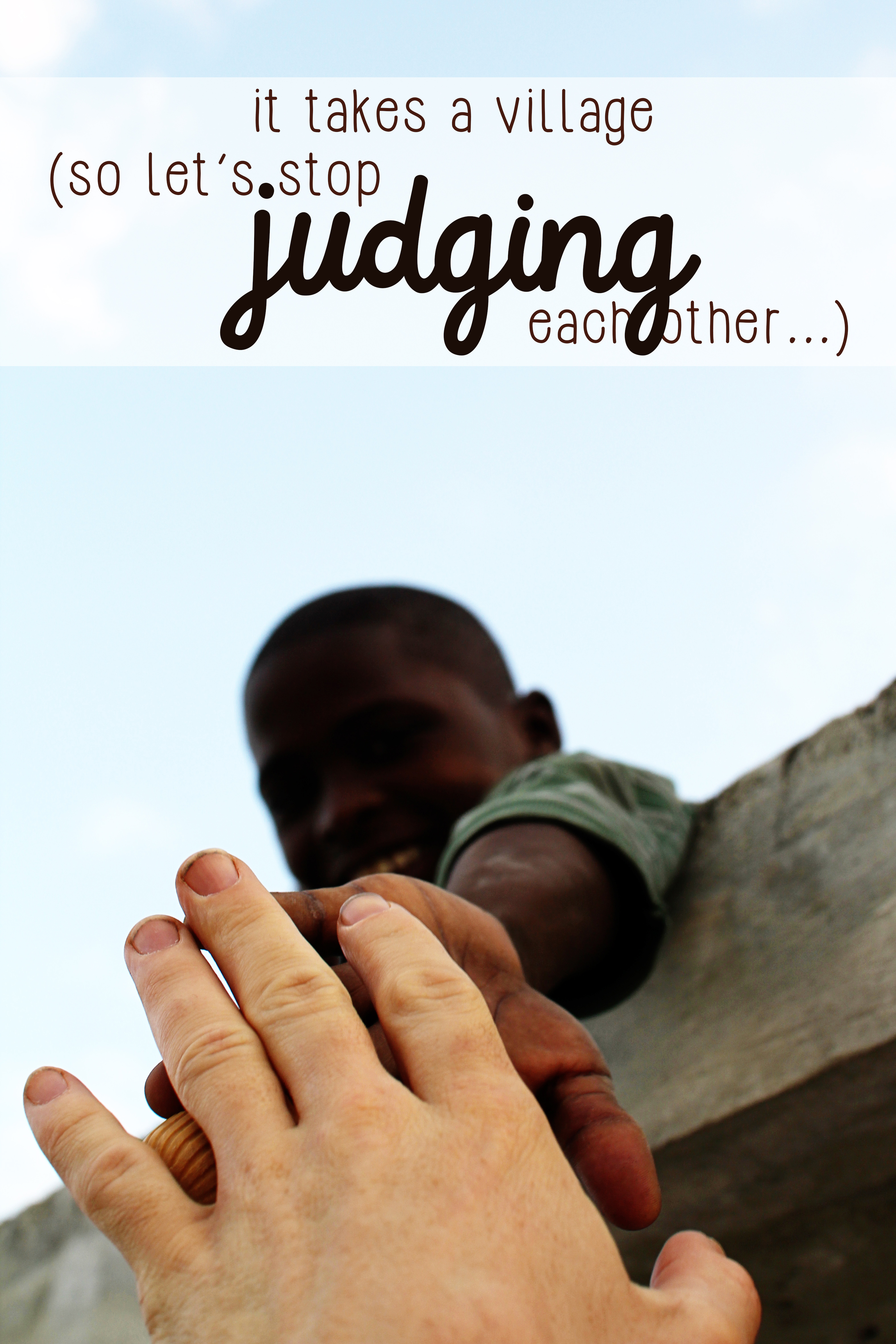


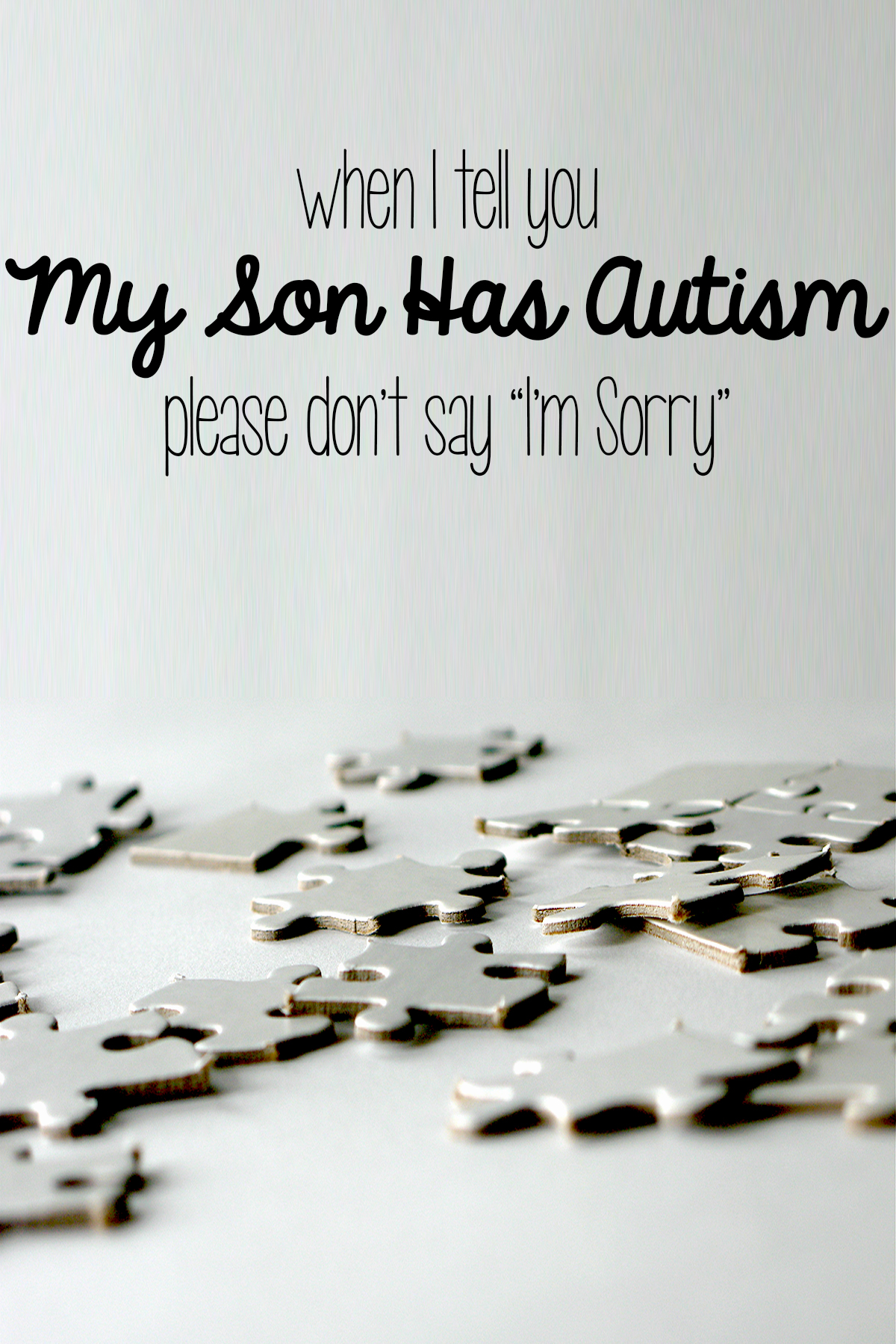
![From overwhelming spit up to realizing you didn't re-stock the diapers in your diaper bag, having an emergency bag in your car for quick changes is essential! This baby car bag is perfect for new moms, with everything she might need at a moment's notice! #SnugDryUltra [ad]](http://i.imgur.com/WTf8MRk.jpg)
